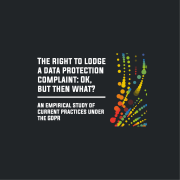As a part of the domain-specific common European data spaces[i], proposal for European Health Data Space Act (“the Proposal”) was introduced on 3rd of May. The increasing importance of health data in our current economic and technological environment put the Proposal at the heart of the debate. In this piece, we will briefly explain what the Proposal is offering and what kind of reactions it has received.
The purpose of the Proposal
According to the Proposal’s memorandum, the reason for the emergence of this regulation is to provide a solution to the EU citizens who couldn’t have been able to access and exercise their rights on health data. Additionally, it is mentioned that uneven implication of GDPR among the member states causes legal uncertainties.
The main goal of the Proposal can be summarized as; creating a system which enables patients to have more control over their data. In addition to this, the Proposal also has provisions regarding the secondary usage of health data and a secure environment for data share within EU.
Envisions of the Proposal
EHDS mainly upholds the application of the rights in the GDPR to electronic health data. The framework of the Proposal is listed below[ii]:
- Chapter I of the Proposal is dedicated to the definitions of the terms. Although some terms are defined separately, some referred other legislation such as GDPR, Data Governance Act.
- In Chapter II, the Proposal brings the rights of the primary use of health data for individuals. With this, natural persons would have the rights of controlling their data such as having access, the right to obtain a copy of the data, overseeing and deciding who will access their data.
- Chapter III of the Proposal mentions Electronic Health Records (“EHR”). These systems which will comply with the conditions stated in this chapter will be allowed to take place in the market. EHR systems will be the key part of cross-border data sharing while setting the standard of health data processing in EU. Commission’s envision for a database of EHR systems and wellness applications will have a positive impact on transparency and safety concerns of the Regulation.
- Chapter IV is dedicated to secondary use of health data combined with EHR. This section brings several obligations to the data controllers in terms of data sharing. To maintain the governance of this process, the Proposal introduce a new institution called: “Health data access bodies”. Additionally, an infrastructure for cross-border electronic health data share named “HealthData@EU” is mentioned in this section.
- Chapter VI mentions additional provisions and a new governmental body called European Health Data Space Board (EHDS Board). It is understood from this chapter that, the Board will be in charge of the implication of EHDS Regulation by member states.
The Road Ahead
It is clear that; EHDS Regulation proposal is up for a hard task and thus it contains ambitious goals. On the one hand, it aims to empower patients, offer potential innovative opportunities and solve researchers’ data access problems and on the other, there are privacy risks and concerns.
As expected, European Data Protection Board and European Data Protection Supervisor published a joint opinion about the Proposal on 12 July 2022. In their analysis, they have rightfully so detected a number of points that need further improvements in the Proposal. One of their major concerns can be put as the interplay problem between the Proposal and previous/future legislation. For instance, the terms introduced by the Proposal such as “data recipient”, “data holder” and “data user” provided new definitions even though they have been defined in the GDPR, Data Act and Data Governance Act. They have mentioned their concerns about creating legal uncertainty if this interplay would not set out diligently. One of the biggest novelties of the Proposal is the secondary use of health data criticized by the EDPB and EDPS for not having detailed explanations for different purposes. It is mentioned in the Opinion that “the Proposal should further delineate these purposes and circumscribe when there is a sufficient connection with public health and/or social security”. Moreover, new administrative bodies are also criticized for the interplay between them and DPAs, also not to mention that these bodies need to have legal expertise on health data.[iii]
European Patients Forum also stated their concerns about the Regulation in their feedback to the Commission. They highlight, patients who are being in charge of their data should be the primary outcome of the Proposal.[iv]
It is stated in EU’s H2020 Program Guidelines on FAIR Data that, data should be “as open as possible, as close as necessary”.[v] The logic behind this principle is to benefit from the data for the public good, it should be accessible, in the meantime, it should be protected to maintain the privacy of individuals. Although the data sharing framework looks promising, EHDS will influence several areas and thus could create legal complexity.[vi] The GDPR has been criticized for not creating an unhindered environment for secondary use of data, therefore, preventing the innovation. The Proposal is an attempt to alter this situation, but we should bear in mind that reactions and feedback to the Proposal will cause fundamental transitions across the EU and in my opinion it’s exciting to witness a transformation of this scale.
____________
[i] ‘A European Strategy for Data | Shaping Europe’s Digital Future’ <https://digital-strategy.ec.europa.eu/en/policies/strategy-data> accessed 15 August 2022.
[ii] Proposal for a REGULATION OF THE EUROPEAN PARLIAMENT AND OF THE COUNCIL on the European Health Data Space 2022.
[iii] ‘EDPB-EDPS Joint Opinion 03/2022 on the Proposal for a Regulation on the European Health Data Space’ <https://edpb.europa.eu/system/files/2022-07/edpb_edps_jointopinion_202203_europeanhealthdataspace_en.pdf> accessed 15 July 2022.
[iv] European Patients Forum, ‘EPF’s Response to the European Commission’s Call for Feedback on the European Health Data Space’ <https://www.eu-patient.eu/news/latest-epf-news/2022/response-to-the-european-commissions-call-for-feedback-on-the-european-health-data-space/>.
[v] ‘H2020 Programme Guidelines on FAIR Data Management in Horizon 2020’ <https://ec.europa.eu/research/participants/data/ref/h2020/grants_manual/hi/oa_pilot/h2020-hi-oa-data-mgt_en.pdf> accessed 17 August 2022.
[vi] Paul de Hert and Anastasiya Kiseleva, ‘Creating a European Health Data Space: Obstacles in Four Key Legal Areas’ (2021) 5 European Pharmaceutical Law Review (EPLR) 17.

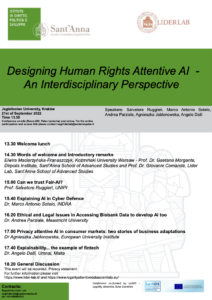


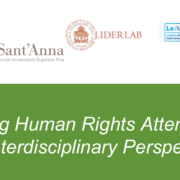


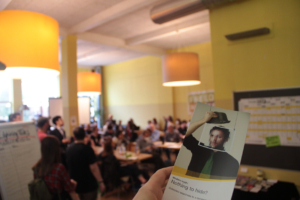
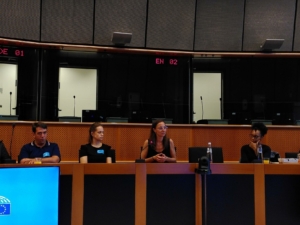



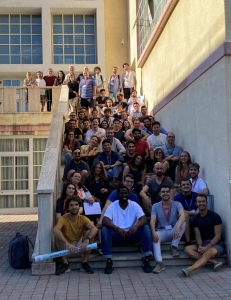 From the 4th to the 8th of July 2022, the first edition of the
From the 4th to the 8th of July 2022, the first edition of the 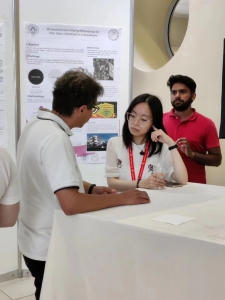
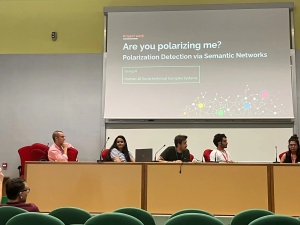
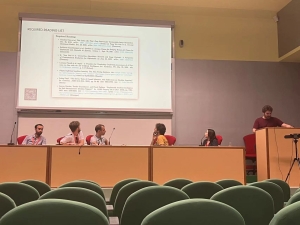
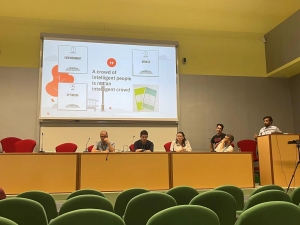
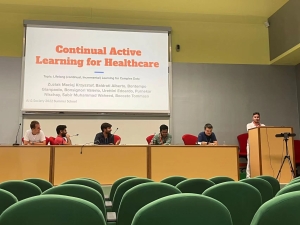


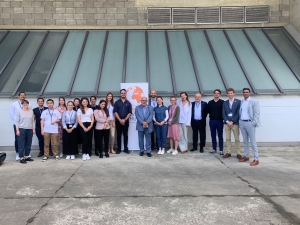
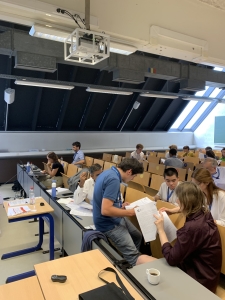 Barbara Lazarotto and Muhammed Dermican (Brussels Privacy Hub Managing Director and Ph.D. candidate) were the Lecturers of the Role-Playing Session named “Selling Books on Amazon: Why would you even need the DMA?”, which explored the relationship between the Digital Markets Act with the GDPR. The participants were divided into different groups that represented different roles such as Amazon Legal Team, NOYB, EDPS, DG Competition, and Publisher’s Law Firm, and had as objective to defend their interests facing an online market sale scenario. In the end, all participants discussed their points of view about the case, the DMA, and its connections with Competition Law and Data Privacy Law.
Barbara Lazarotto and Muhammed Dermican (Brussels Privacy Hub Managing Director and Ph.D. candidate) were the Lecturers of the Role-Playing Session named “Selling Books on Amazon: Why would you even need the DMA?”, which explored the relationship between the Digital Markets Act with the GDPR. The participants were divided into different groups that represented different roles such as Amazon Legal Team, NOYB, EDPS, DG Competition, and Publisher’s Law Firm, and had as objective to defend their interests facing an online market sale scenario. In the end, all participants discussed their points of view about the case, the DMA, and its connections with Competition Law and Data Privacy Law.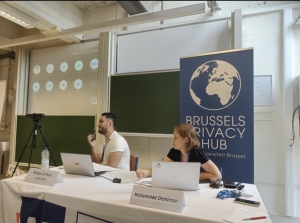
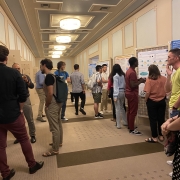
 During their contributions the speakers addressed questions such as whether or not a potential data ownership right could integrate into existing data protection law. The second panel, moderated by Giovanni Comandé from SSSA, was entitled “Trustworthy Data Processing Design”. The speakers Jessica Eynard (Toulouse Capitole University), Gabriele Lenzini (University of Luxemburg), and Salvatore Rinzivillo (Italian National Research Council) debated what kind of legal, ethical, and technological framework is needed in order to ensure a trustworthy data economy that increasingly is in demand for secondary data uses.
During their contributions the speakers addressed questions such as whether or not a potential data ownership right could integrate into existing data protection law. The second panel, moderated by Giovanni Comandé from SSSA, was entitled “Trustworthy Data Processing Design”. The speakers Jessica Eynard (Toulouse Capitole University), Gabriele Lenzini (University of Luxemburg), and Salvatore Rinzivillo (Italian National Research Council) debated what kind of legal, ethical, and technological framework is needed in order to ensure a trustworthy data economy that increasingly is in demand for secondary data uses.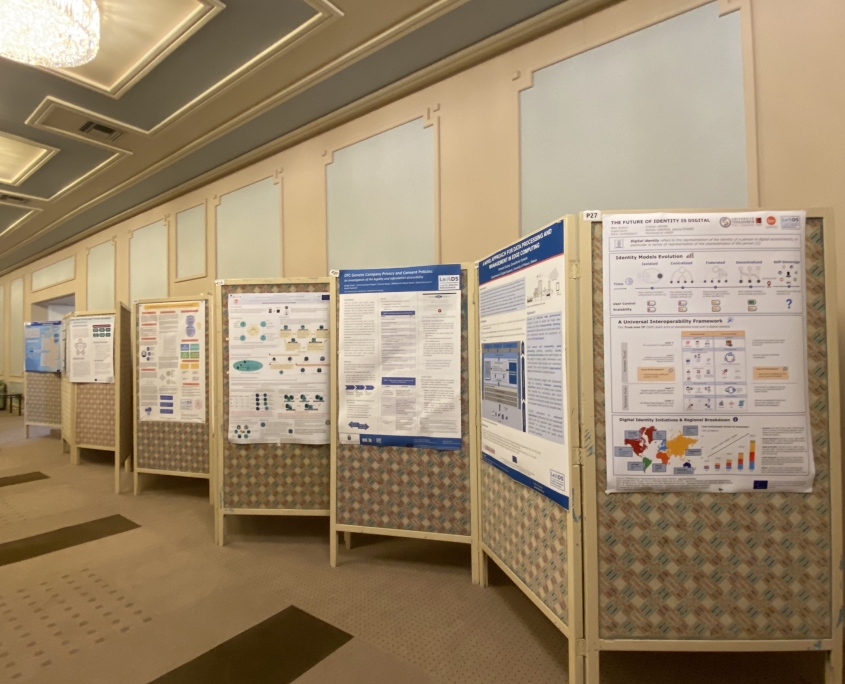

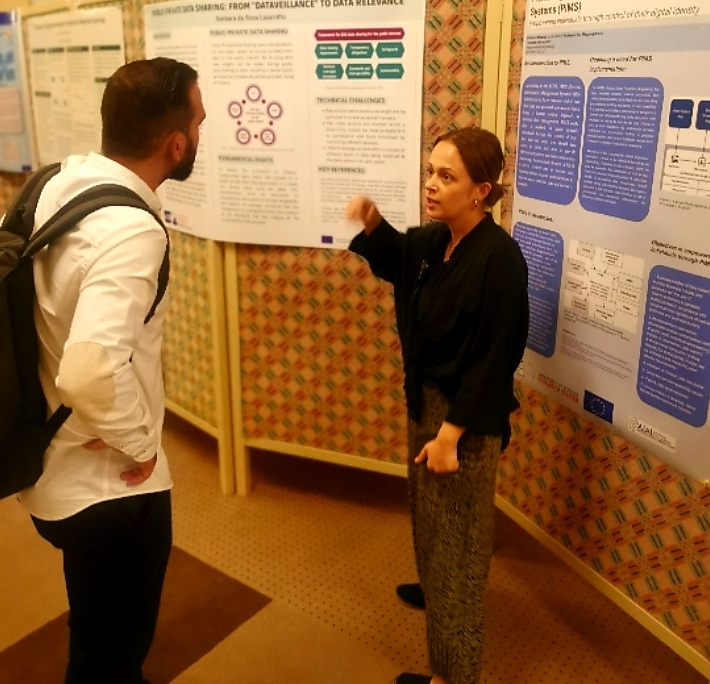
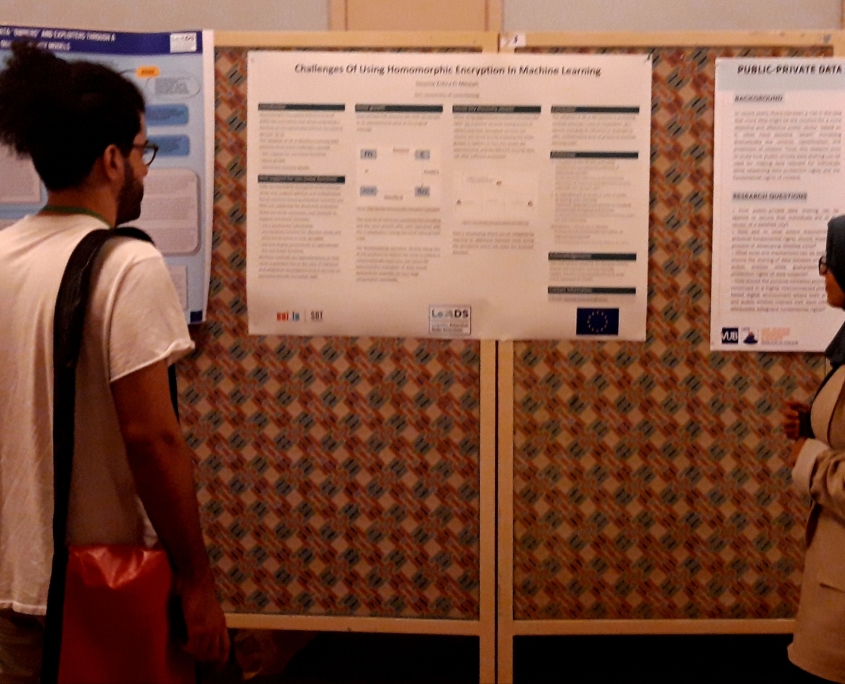
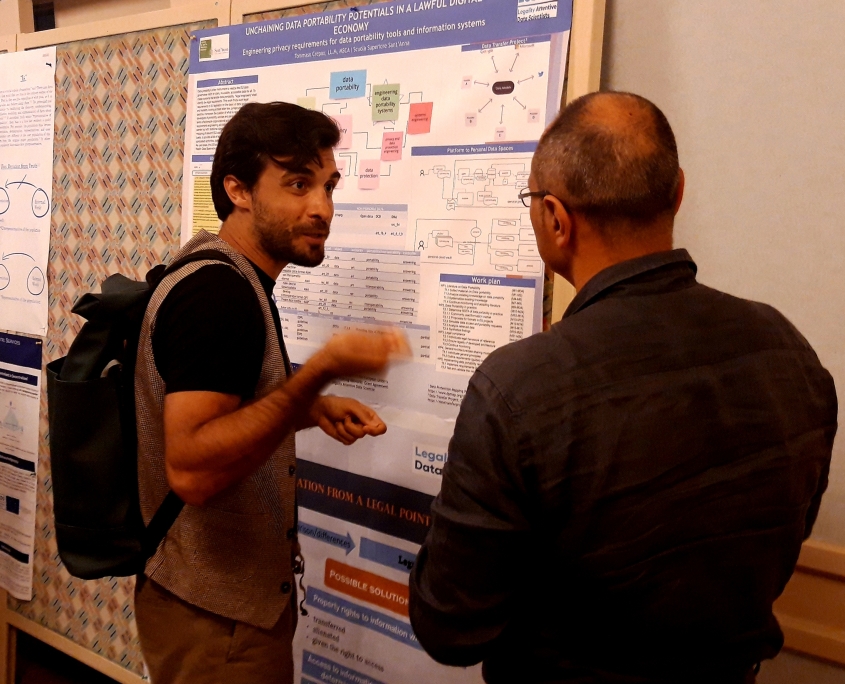
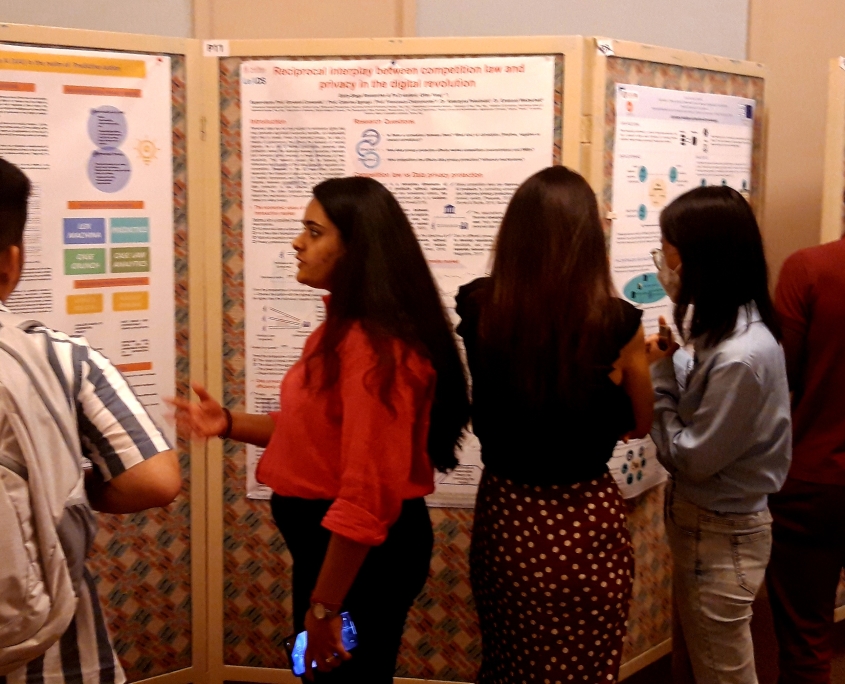
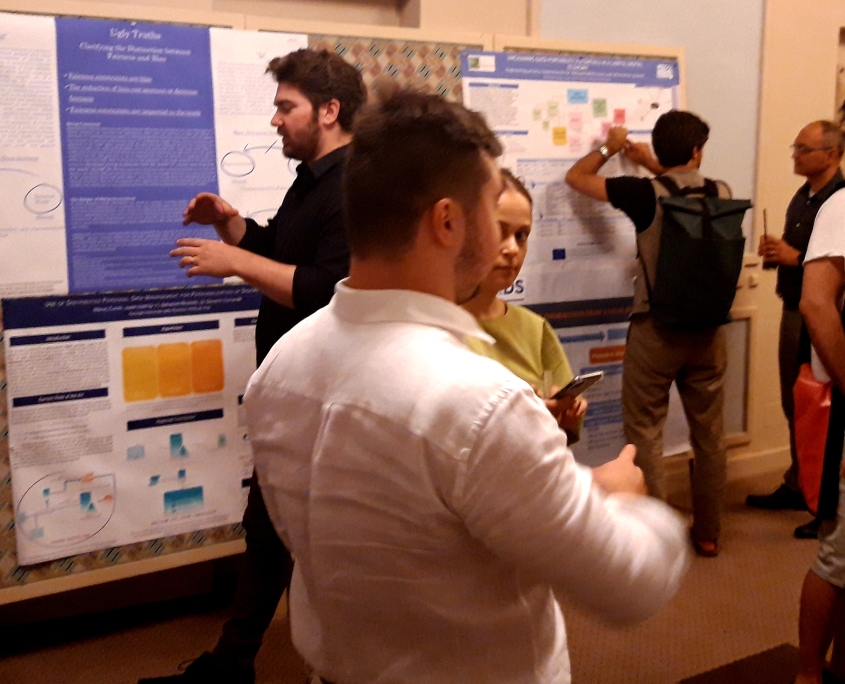
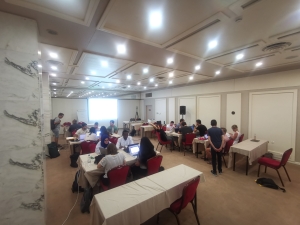 First, Mohamed Ali Kandi from UT3 introduced the ESRs to the creation and deployment of smart contracts with solidity. Followed by this introduction the ESRs were divided in groups consisting of both lawyers and computer scientists – reflecting the interdisciplinary approach which the LeADS project epitomizes. These interdisciplinary groups then had to write and deploy a smart contract which allowed a controller to assign and remove the right to data subjects to rectify their data. Second, Itzel Vazquez Sandoval from University of Luxembourg introduced the ESRs to the design and analysis from security protocols. During the subsequent practical session, the ESRs were introduced to the tool ProVerif and had to analyse a bank statement request protocol. In groups the ESRs had to identify potential weaknesses for attacks that could lead to security breaches in the design from the protocol.
First, Mohamed Ali Kandi from UT3 introduced the ESRs to the creation and deployment of smart contracts with solidity. Followed by this introduction the ESRs were divided in groups consisting of both lawyers and computer scientists – reflecting the interdisciplinary approach which the LeADS project epitomizes. These interdisciplinary groups then had to write and deploy a smart contract which allowed a controller to assign and remove the right to data subjects to rectify their data. Second, Itzel Vazquez Sandoval from University of Luxembourg introduced the ESRs to the design and analysis from security protocols. During the subsequent practical session, the ESRs were introduced to the tool ProVerif and had to analyse a bank statement request protocol. In groups the ESRs had to identify potential weaknesses for attacks that could lead to security breaches in the design from the protocol.